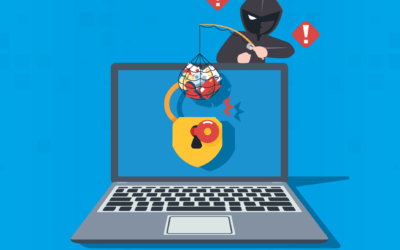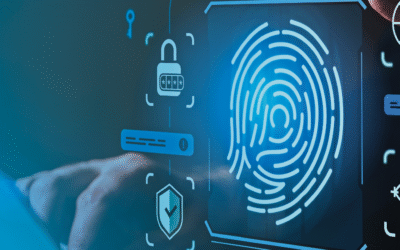Don’t go phishing
And other tips to avoid
becoming a cybercrime victim
 Cybercrime might not strike the same terror in hearts as other high-profile criminal activities, but it can still leave victims traumatized. Business cases generate the biggest headlines, but even individuals can suffer serious consequences.
Cybercrime might not strike the same terror in hearts as other high-profile criminal activities, but it can still leave victims traumatized. Business cases generate the biggest headlines, but even individuals can suffer serious consequences.
About 594 million people across the globe are affected by cybercrime every year. Sometimes, the steps you don’t take are every bit as important as those you do.
A “To-Don’t” list
Cyber criminals are increasingly brazen in how they obtain personal information and can fool even the most cautious. The following cyber security tips will help you avoid becoming a victim.
-
- DON’T click on links from unknown sources.
Cyber attackers can lure you into clicking on links that appear enticing. Resist the urge; one click of your mouse leaves you susceptible to malware — malicious files used to steal data and damage your device or network. - DON’T reuse passwords over multiple accounts.
It’s tempting to use the same password across different sites, but cyber criminals reap the rewards of your complacency. Thwart them by using a password manager like LastPass or Dashlane instead. - DON’T skip two-factor authentication.
Two-factor authentication, which requires a mobile phone number or email address, offers an extra layer of protection. You’ll have to verify your account whenever you log in from a new device, but it may save you lots of hassle later. - DON’T give away confidential information over the phone.
Cyber tricksters often turn to the telephone to gain access to confidential data. Don’t fall for this! When in doubt, hang up and call the company back directly at a published number to verify their legitimacy. - DON’T overshare online either.
Avoid sharing sensitive or personal information online. Be wary when posting photos taken on GPS-enabled devices; these contain embedded geotags that reveal your location. Disable this setting before uploading photos. - DON’T make sensitive transactions over non-secure websites.
Only make online purchases and financial transactions over a secure website. That means the web address begins with “https” instead of “http” and includes a padlock icon. - DON’T use outdated software.
Make sure antivirus programs and other security software is current. This offers protection against the most recent security threats, which continuously evolve. Update your operating system when prompted, as well.
- DON’T click on links from unknown sources.
Golden West offers help
For added peace of mind, consider protecting your computer with VIPRE Advanced Security software from Golden West. The software is included when customers bundle internet with another Golden West service, and it can be installed on up to three devices. It can also be purchased for an additional small fee added to your monthly bill. Visit goldenwest.com/vipre for more information.



